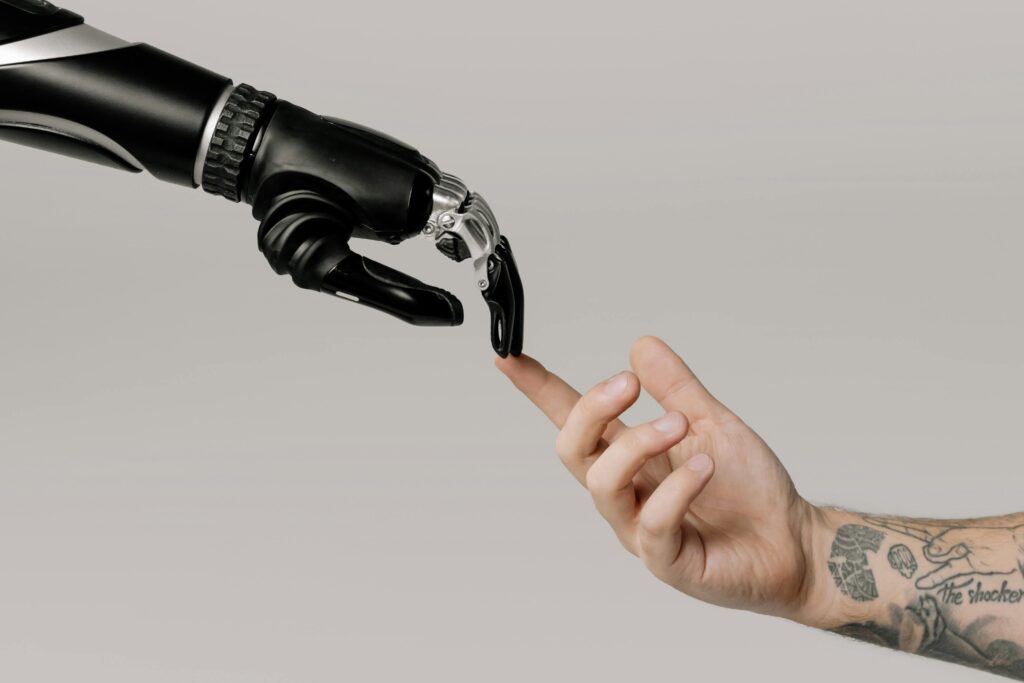The rise of artificial intelligence (AI) has sparked countless debates and fears about the future of work. Headlines often predict a dystopian future where robots and algorithms replace human workers in every industry. However, this perspective overlooks the profound ways AI can complement human abilities rather than replace them. Here are several reasons why AI will never fully take your job.

AI Excels at Automation, Not Creativity
AI is exceptionally good at automating repetitive and mundane tasks, allowing humans to redirect their energy towards more creative and intellectually stimulating endeavors. Creativity, critical thinking, and innovative problem-solving are areas where humans naturally excel. Jobs that demand these skills—such as artists, designers, strategists, and inventors—will always require the human touch. The uniqueness of human creativity cannot be replicated by algorithms, which are inherently designed to follow pre-defined rules and patterns.
While AI can assist by handling routine tasks, freeing up more time for humans to focus on creative pursuits, it cannot originate new ideas or concepts. Creative work involves an element of unpredictability and a capacity to connect disparate ideas in ways that machines cannot. By offloading mundane tasks to AI, humans can enhance their creative output, leading to innovations and breakthroughs that would not be possible without human ingenuity.
Human Empathy and Emotional Intelligence
While AI can analyze data and recognize patterns, it lacks emotional intelligence and empathy—key components of many professions. Roles in healthcare, counseling, customer service, and education require an understanding of human emotions and the ability to connect on a personal level. These professions thrive on the human ability to listen, empathize, and respond with sensitivity to individual needs and concerns.
Empathy and emotional intelligence are crucial for building trust and rapport, something AI cannot achieve. The nuanced understanding of human behavior and the ability to navigate complex social interactions are uniquely human traits. In fields where the human connection is essential, AI can provide support but will never replace the depth of interaction and understanding that only humans can offer. This ensures the ongoing need for human workers in these emotionally intensive fields.
Complex Decision Making
In situations that require nuanced judgment and ethical considerations, AI falls short. Humans are capable of making complex decisions that involve moral and ethical reasoning, which is essential in fields like law, social work, and management. AI can provide data and suggestions, but the ultimate decision-making power rests with humans, who can weigh various factors and consider the broader implications of their choices.
Human decision-making involves a blend of intuition, experience, and ethical considerations that AI algorithms are not equipped to handle. Ethical dilemmas often require a balance of competing values and the ability to foresee long-term consequences. AI lacks the ability to fully grasp these dimensions and apply them in a human context. This inherent limitation of AI ensures that in roles requiring complex judgment and ethical responsibility, human oversight and intervention will always be indispensable.
Adaptability and Flexibility
Humans are inherently adaptable and can handle unforeseen circumstances and challenges with creativity and resourcefulness. While AI can be programmed to handle specific tasks, it lacks the flexibility to adapt quickly to new, unexpected situations. This adaptability is crucial in dynamic fields such as emergency response, event planning, and entrepreneurship, where the ability to pivot and innovate on the fly can make the difference between success and failure.
Adaptability also encompasses the ability to learn from new experiences and apply that learning in varied contexts. Humans excel at transferring knowledge across different domains, making connections that AI, limited by its programming, cannot. This unique human trait of flexible thinking and adaptability ensures that in rapidly changing environments, human workers will remain essential for navigating complexities and driving continuous improvement.
The Human Element
At the end of the day, people value human connection. Whether it’s in business, education, healthcare, or entertainment, the human element is irreplaceable. AI can enhance our capabilities and efficiency, but the intrinsic value of human interaction and relationships will always be paramount. In many industries, personalized service and the ability to understand and meet individual client needs are key differentiators that AI cannot fully achieve.
The human element encompasses not only empathy and emotional intelligence but also the cultural sensitivity and personal touch that come with genuine human interaction. In fields that rely heavily on relationship building and personal engagement, such as sales, hospitality, and therapy, the irreplaceable value of human connection becomes evident. While AI can provide tools and support, the warmth, understanding, and depth of human interaction remain essential for truly effective and meaningful service.
In conclusion, while AI will continue to transform the workplace by automating tasks and providing data-driven insights, it will never fully replace human jobs. Instead, it will augment human abilities, enabling us to focus on what we do best: creating, connecting, and innovating. Embracing AI as a tool rather than a threat can lead to a more productive and fulfilling work environment for all.
Leave a Reply